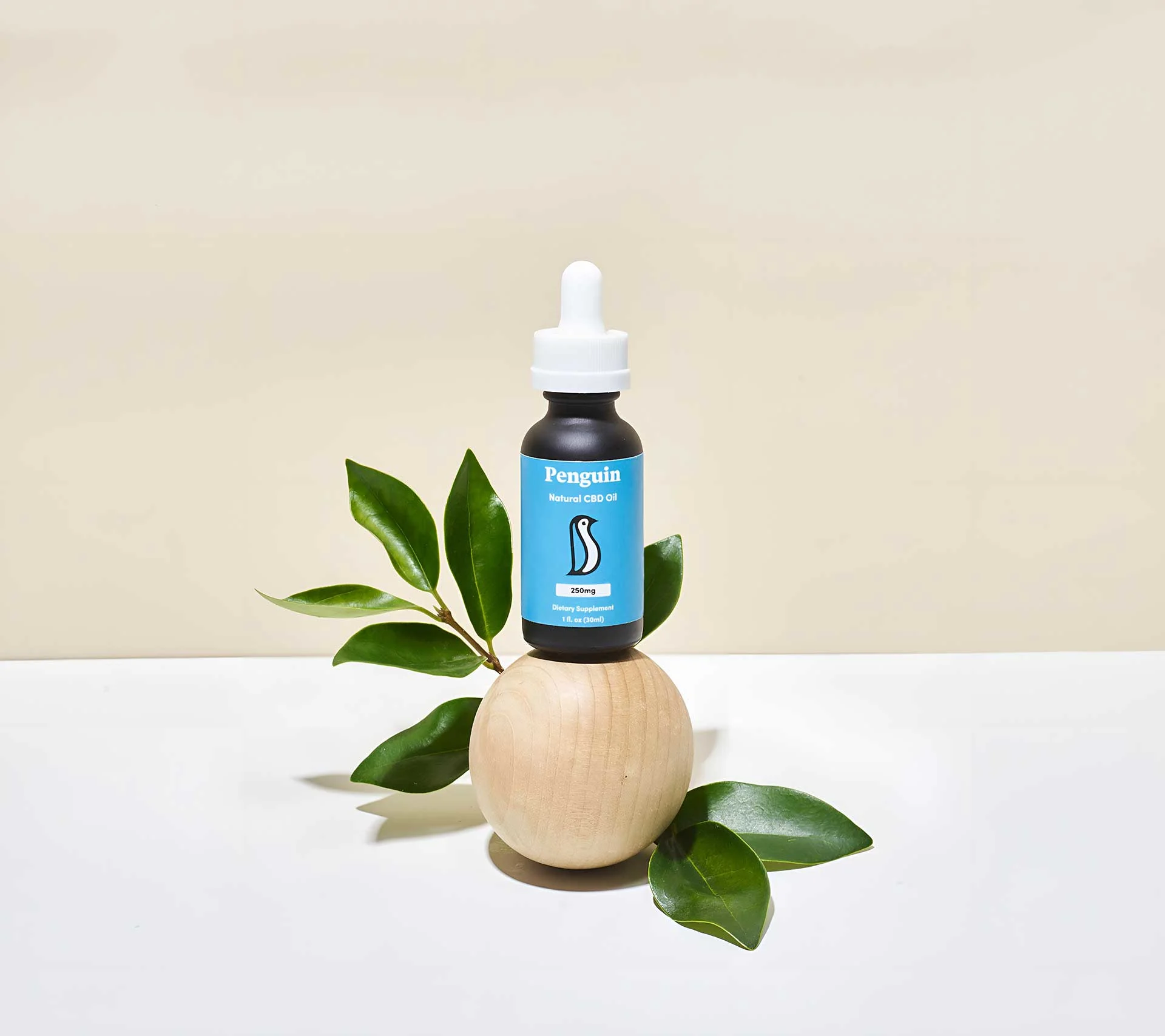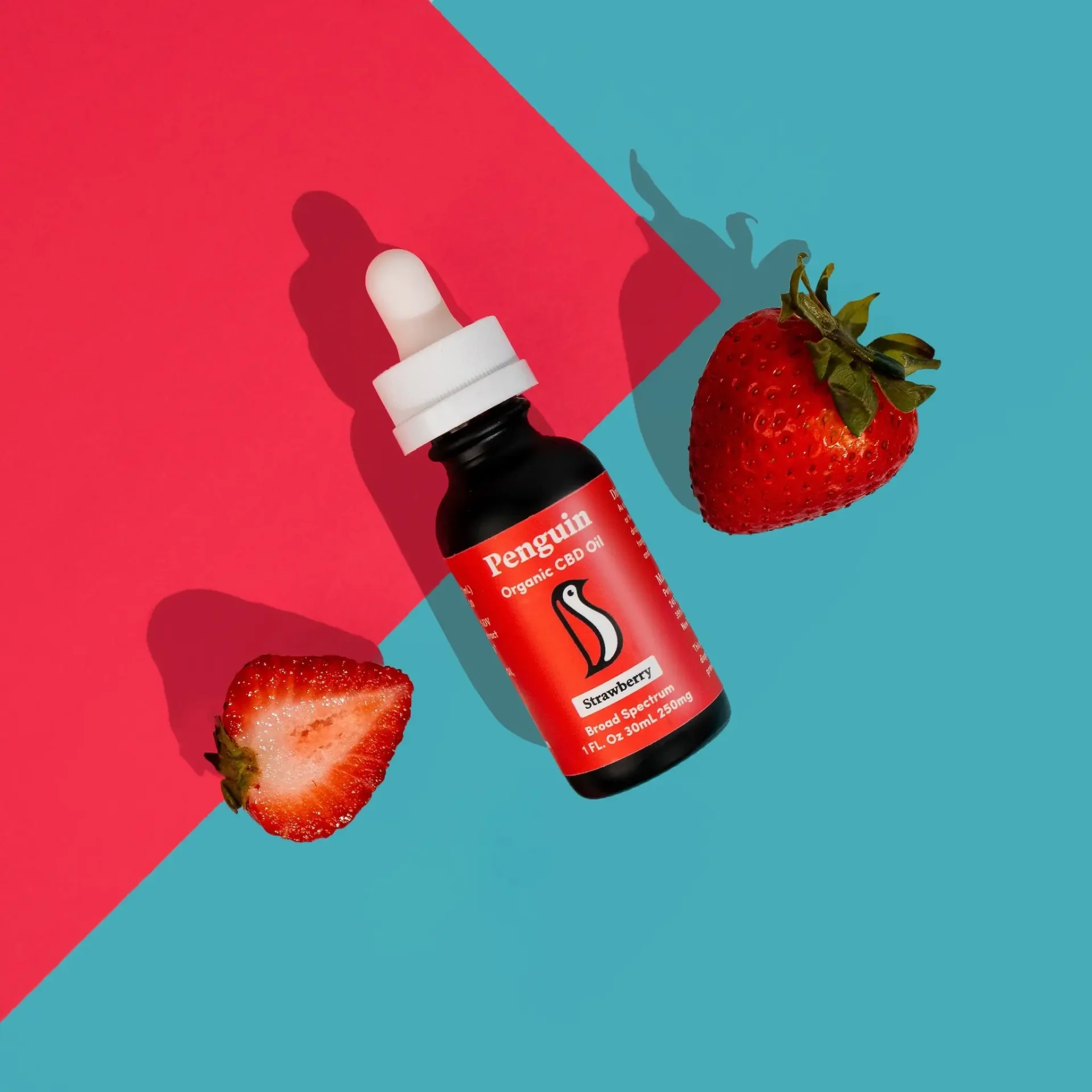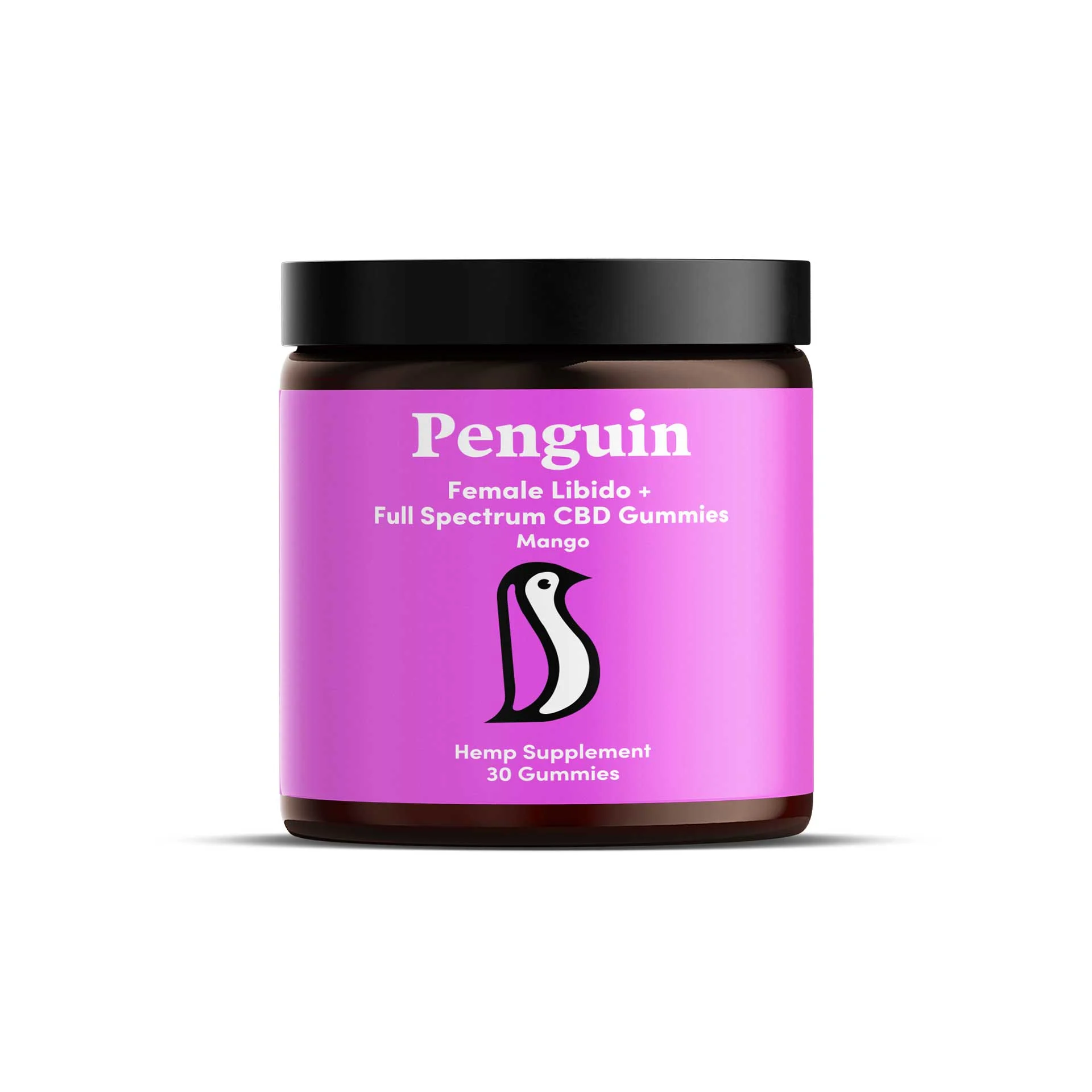Is CBD Addictive?
 By Penguin CBD
By Penguin CBDResearch continues to emerge about CBD and how it interacts with the body. There have been many studies conducted to explore its potential effects.
However, given that this research is still in progress, it's difficult for scientists to answer that question completely. Before we get into whether CBD is addictive, let's look at the science behind addiction – what it is and who's at risk.
What makes a substance addictive?
Because legal requirements don't allow us to compare THC and CBD, we're going to presume that you know where CBD comes from and that it doesn't do the same thing to your body as marijuana. The thing to keep in mind here is that marijuana can be both physically and psychologically addictive, depending on the person.
Many people don't understand how a person can go from living a drug-free life to becoming addicted. Even more confusing for some people is why people choose to remain addicted to drugs. Sometimes, people think a person decides to remain addicted because they have no willpower or morality.
The truth is that addiction is a chronic disease that's characterized by drug-seeking behavior. It leads users to situations that are dangerous and often harmful. Repeated drug use can change how the brain works and interfere with their ability to resist using.
On the other hand, CBD doesn't appear to be addictive since it's not psychoactive. CBD interacts with the endocannabinoid system to help release endocannabinoids we already have in our bodies.
But wait, what does that mean?
When a person takes an addictive drug, the brain's reward circuit is activated and releases endorphins like dopamine. The result is that a person begins to feel varying degrees of euphoria. Then the brain signals to the person that they need to feel more of that to survive. Surges in dopamine to the brain reinforce that feeling, causing people to seek out the drugs over and over.
A person who consistently uses addictive drugs alters their brain. Cells in the reward circuit are changed, which means that the high a person feels as their addiction progresses is never the same as the high a person felt the first time they used.
Research hasn't shown that CBD affects the brain's reward system, but it affects other bodily systems.
The endocannabinoid system
Let's get clear about one thing. CBD is an amazing supplement that can help you live your best life and increase your overall well-being. There are significant benefits (more about those later), but for now, just know that CBD might be the answer you're seeking.
In 2018, the Farm Bill was passed, making industrial hemp-derived CBD legal across the country, and creating one of the fastest-growing self-care industries. CBD's legality still varies from state to state, so make sure you protect yourself and know the laws where you live.
More and more people ask questions about CBD since it's more available than ever, but the truth is that health-food stores have been carrying CBD for cooking and skincare for decades. That's great news for everyone, as even big-name companies are exploring how CBD can benefit the average consumer.
The active ingredient in CBD is, of course, CBD. It's thought to play a role in regulating the endocannabinoid system (ECS), one of the most under-researched and misunderstood systems in the human body.
Without getting too technical, the ECS is present in every human and named for the cannabis-like substances that each of us produces. Homeostasis helps keep everything in your body – from your temperature to your heart rate – running optimally.
When your ECS is out of balance because of stress, chronic illness or other factors, it sends signals to other parts of your body to recorrect. The ECS helps to regulate lots of important bodily functions.
The ECS is turned on and off at certain times to help your body run the way it should. But, if you're deficient in cannabinoids, the ECS might not work properly. One of the major appeals of CBD products is that you can appropriately dose to achieve optimal functioning. In other words, you don't need 500 mg of CBD if 250 mg works just as well for you.
So, what do we know about CBD?
We know that CBD research continues to amaze scientists. And we know that enthusiasts continue to find new paths to wellness by using CBD. CBD can currently be found in everything from shampoo to coffee creamer and even makeup, but what do we really know about it?
We also know that there are inadequate regulatory practices relating to CBD, which means that what you think you're buying might not be what you actually get. There's no way to tell how much you should take and no tangible way to figure out if it's going to work.
Scientists also don't know what kinds of people might receive help from using CBD, which makes it even more difficult to design and implement research studies.
The challenge is not knowing what you're buying.
Since the market is so unregulated, it's important to buy through a reputable supplier like us. Otherwise, you run the risk of getting a product that puts you outside the laws.
Something to keep in mind is the fact that the hemp plant is what's known as a “hyperaccumulator,” which means that it absorbs anything in the soil in which it's grown. That's one reason hemp can grow in so many places, but it also means that your CBD product's overall purity is going to be directly related to the quality of the soil. So, if product is grown behind a chemical production plant, chances are some chemicals are going to seep into the soil, which you'll ingest.
As we mentioned earlier, because there’s so little regulation, there's no way to determine your product's quality unless you explicitly trust your retailer. You might think you're getting a high-quality gummy or tincture, but you could be getting a product with zero CBD in it.
There are multiple factors that can influence this, including the distillation process, unreputable retailers and unclear FDA regulations. Because all products on the market are so unregulated, you must be careful when selecting your retailer.
To help keep everything transparent for our customers, Penguin CBD is dedicated to providing lab purity results with every product we sell. That's just one way that we make sure to set ourselves apart from the rest of the crowd.
The ECS is so vast, and there's so much to research, that CBD studies still have a long way to go. There's not much scientific evidence to say one way or another about long-term effects or how CBD might affect brain development. That's yet another reason it's so important for you to trust your supplier.
Speaking of research, it's still not clear how CBD might interact with medications, so that's something to keep in mind if you start to explore this path. We also don't know exactly how the liver metabolizes CBD, so if you're in a high-risk category for liver-related issues, you should think carefully about your choices.
Third-party laboratory testing is done when a retailer sends its products to an outside lab to be evaluated for purity and CBD levels. However, many companies don't even bother testing their products for purity levels. That's not how we do it, of course, but we know they're out there.
When you’re looking to buy CBD oil for sale, lab tests help separate facts from fallacies and allow you to make good purchasing choices. Tests are good for both you as the consumer and for the retailer, since third-party testing helps establish the purity of what they're selling.
Right now, third-party testing is a requirement by law, but we believe it's important, and that's why we assess all our CBD for potency and purity. This is just one way you can set yourself at ease when purchasing CBD products.
Final thoughts on whether CBD is addictive
Addiction is thought to be a disease involving the brain since it rewires the way your brain works. It's often shown as an intense desire to use a drug, despite knowing its consequences. People who have addictions will stop at nothing to get their drug of choice because using the drug has rewired their brain to make them believe they need it to survive. People with addictions often have disordered thought patterns and changes in their cognition.
Initial studies haven't shown that CBD influences or changes a person's perception, judgment or ability to make decisions. For this reason, many researchers believe that CBD isn't addictive. But, as time continues and more research is conducted, more answers about CBD are bound to be answered.










